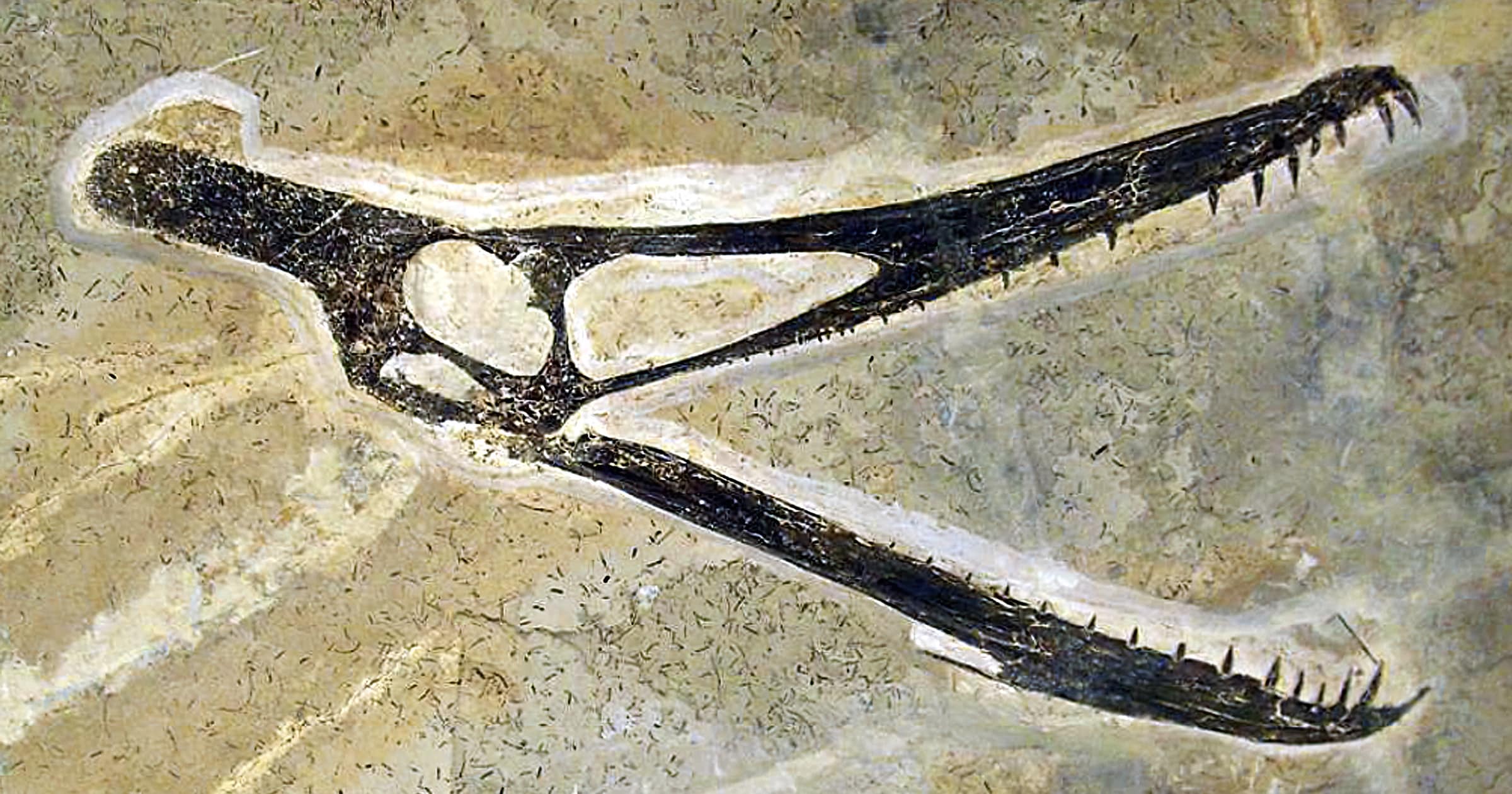 Intelligent Design
Intelligent Design
 Paleontology
Paleontology
Farewell to Günter Bechly

We are shocked and grieved to report the death of our friend and colleague Günter Bechly, on January 6 in an auto crash in Austria. He was 61. “There is no easy way to say this,” said Center for Science and Culture Managing Director John West yesterday morning when we all found out. I could feel my scalp tighten from the grim tone of his voice before I even knew what was coming. Now try in vain to imagine how Bechly’s wife, Luise, and his two young sons are feeling. It seems beyond inadequate to wish them comfort.
Dr. Bechly, a paleontologist who was pushed out of his position as a curator at the State Museum of Natural History in Stuttgart, Germany, after becoming persuaded by the evidence for intelligent design, was not just a gifted and prolific scientist. He was a hero. Changing your view about a controversial matter when it costs you nothing is one thing. When it costs you, in the professional context, everything — that is quite another.
The Bechly Effect
As an academic field, evolutionary biology is a bully’s playground where the use of intimidation to silence doubters is just the way things are done. Bechly refused to be bullied and thus gave courage to many in the science world, including friends of ID that you will be hearing more about in years to come. It could be called (not my formulation) the Bechly Effect. One person gives courage to others, and it builds from there.
He wanted to know what was true. In Germany, in organizing an exhibit at his museum celebrating the 200th anniversary of Darwin’s birth, he almost on a whim decided that if he was going to mock intelligent design, as he intended, he really ought to read a few books by those ID rascals. The experience changed him profoundly. That story is memorably told in the documentary Revolutionary. The switch to ID cost him his job but it won him many friends in the ID world. He will be terribly missed.
A Visit to the Pacific Ocean
What can one say about Günter as a man? As a colleague, he probably worked most closely with biologist Richard Sternberg, most recently on the “waiting time” problem for evolution. They spent personal time together and Sternberg even had the opportunity to introduce Bechly’s sons to the Pacific Ocean. I suppose because most of us at Discovery Institute are English-speakers, Günter’s Germanness was a point of charm with a bit of foreign exoticism.
I told Sternberg a story from own experience. I learned about more than paleontology from Bechly. At a Discovery Institute dinner in Seattle in 2018, I sought to make an introduction. Greeting Günter, whom I knew already, I said, “I want to introduce you to my wife, Nika,” who had not met him. I put out my hand at the same time to shake his. But he stopped me. He said, “One should always shake a lady’s hand first.” And he then did so, before shaking mine. It was a good lesson, even if a slightly stinging one in the moment. I smiled but Günter was all in earnest. Nika and I laughed about it after the dinner, but Günter was not trying to be funny.
The correction, says Sternberg, was a typical German gesture. Austrians wouldn’t do it that way. Dr. Sternberg summed up about Bechly, “He was a true German, a real Teuton, an incredible intellect, a sweet man, and irreplaceable.”
I asked him what he thought being German, or Teuton, had to do with it. In asking, I inadvertently mispronounced Teuton — as “Teut-on.” The second “t” belongs with the second syllable. Dr. Sternberg corrected me — “Teu-ton” — which also made me smile. Here was an intellectual partner for Dr. Bechly! He explained that he meant Günter was “direct in facing problems, of very strong character and determination, an efficient thinker, and detail-oriented. He liked things to be precise. His were the best of Teutonic traits.”
Quite an Accomplishment
And yet, says CSC Associate Director Casey Luskin, once you got to know him, “Günter was also very gentle, a softy on a level with Paul Nelson,” another scientist in our circle known for that quality. To be a softy like Dr. Nelson is quite an accomplishment.
As a scientist he was amazingly accomplished. He had fossil insect species named in his honor, and numerous peer-reviewed publications. I edited his long-running “Fossil Friday” series at Evolution News, and could barely keep up with him. At his death he was working on two book manuscripts, one for a professional readership on human origins and another for a trade or popular audience on why the fossil record, far from confirming Darwinian theory as lots of people think, not only challenges it but supports the theory of intelligent design. That was a very exciting project to me when I first heard about it from him. The most recent presentation of Günter’s that I’ve seen was in Cambridge, England, on that subject. I would guess it is a fair representation of the outline of his planned popular book. It is very compelling. We will see what ultimately becomes of that project.
Günter was a gentleman, but he also knew how to engage in a scientific fight that was devastating to the other side.
What about spiritually? As biologist Jonathan McLatchie recounts to me, Bechly was on a spiritual journey for much of the time we knew him. Jonathan and Günter met in 2013, when Günter was a theist but not a Christian and, in fact, was pretty scathing about the Bible. By 2022, he was persuaded by the evidentiary case for Christianity as he saw it. Yet in a moving self-portrait for Salvo Magazine, he admitted that his faith remained evidentiary and intellectual rather than, as I read his words, experiential or emotional. He still found prayer difficult. I can identify with much of that.
The Neo-Platonist Camp
Interestingly, his take on ID was in the neo-Platonist camp, like Dr. Sternberg’s. In company with philosopher of science Stephen Meyer, Dr. Bechly followed the method of inference to the best explanation. But as Bechly said in a long article co-written with Dr. Meyer for the mammoth 2017 volume Theistic Evolution, in a footnote he included there, he also considered that life might represent “Platonic forms in the mind of an intelligent designer.” Sternberg related to me the conference in Santa Barbara where he first sketched the Platonist understanding of ID for a group of scholars, including Günter. That night, Bechly couldn’t sleep as he thought about the implications.
The essay with Meyer, “The Fossil Record and Universal Common Ancestry,” was a key contribution. It “highlight[s] the many discontinuous or abrupt appearances of new forms of life in the fossil record — a pattern that contradicts the continuous branching tree pattern of biological history postulated by proponents of universal common descent.” In that tour de force, they reviewed 19 fossil explosions in the history of life that testify against Darwinism and support design.
An Encouraging Thought
It is hard to capture the experience of being bereft that we feel now — needless to say, all the more so for Dr. Bechly’s wife and sons. And this is on top of the recent loss in 2024 of ID biologist Jonathan Wells, author of Icons of Evolution and other books.
However, Casey Luskin offered an encouraging thought. He was talking yesterday with Dr. Wells’s widow, Lucy Wells. She was upbeat and said, “ID is unstoppable,” despite the death of these two towering figures. Luskin agreed: “If you took Discovery Institute, put everyone on an airplane, and God forbid, dropped us in the ocean, ID would go on and even thrive. I’m devastated by the loss of my friend Günter but ID is bigger than all of us and anyone who looks at the evidence will find this is true.” With all the publications and other writings, the publicly available teaching, extensive mentoring, and so much other outreach to the world, the fire has already been lit, by Günter and Jonathan and many other scholars.
Farewell to Günter Bechly, our friend, co-worker, and teacher, who helped light the fire. It cannot be unlit. Comfort to his family, for whatever that may be worth. We will all miss you for a very long time. More to come about this wonderful man.
